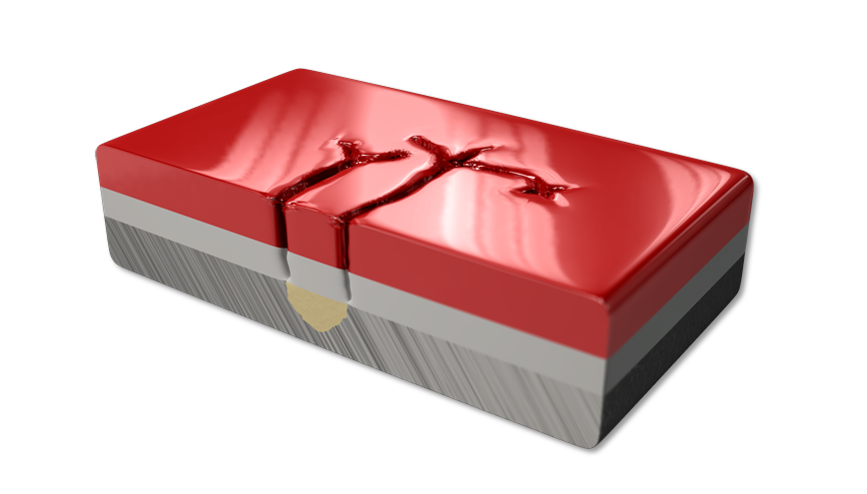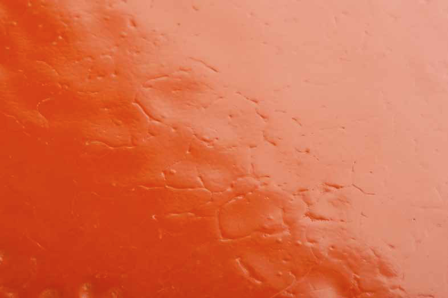Cracking

Description
Random breaks or crevices in the paint film, often adjacent to filled seams or panel edges. Cracks frequently take form of a three pointed star. The depth of penetration of the paint film varies, severe cracks may penetrate to the substrate.
Fine cracks of splits may occur at the featheredge of a spot repair shortly after the application of the topcoat.
Cause
Weakness such as blistering being exaggerated by weathering, or magnification of stresses normally present in the paint film. These stresses are increased by:
- Inadequate mixing of materials prior to application, insufficient thinning of the wrong grade of thinner.
- Poor preparation of the surface; too coarse abrasives, inadequate cleaning or poor seam filling.
- Contamination by oil or water in the air line.
- Excessive film thickness and insufficient drying time between coats, cold air fanning causing the surface to dry over trapped solvent.
- Substrate too hot or too cold during spraying
- Application of thermosetting topcoat over partially cured paint film or thermoplastic acrylic topcoat.
Prevention
- Always mix paint thoroughly, and use the correct amount of recommended thinner.
- Prepare the surface carefully, using the correct grade of abrasives. Ensure that seams are correctly filled. Clean surfaces thoroughly, paying special attention to feather edges.
- Always maintain compressed air equipment properly.
- Use correct spraying techniques. Apply paint in thin, wet films and allow adequate drying time between coats.
- Ensure that the surface is within the recommended temperature range before commencing spraying.
- Isolate the thermoplastic acrylic with a light coat of epoxy primer.
Rectification
In minor cases, where only the topcoat is affected, sand down to a sound finish and repaint. If cracking has penetrated the primer, strip all paint from the affected area, ensure that any defects in the substrate are corrected and repaint, persist, rub down the surface and repaint.

